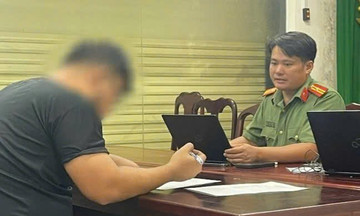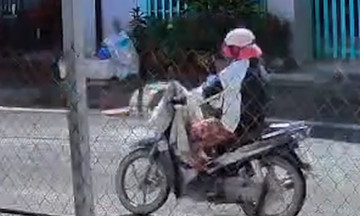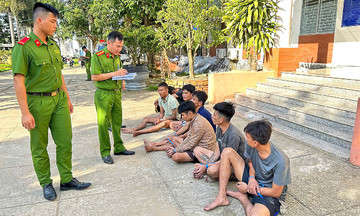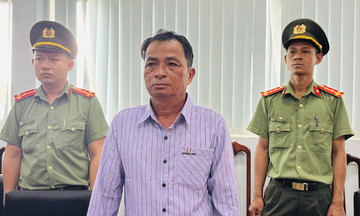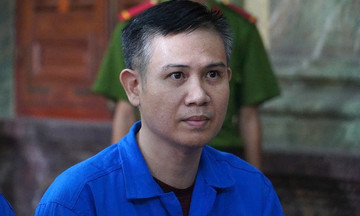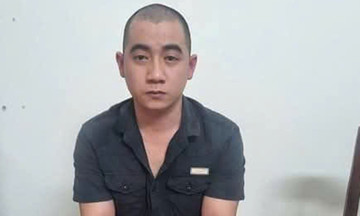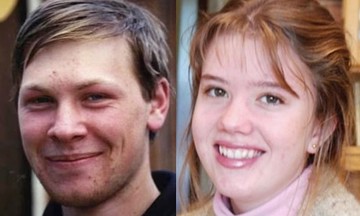On 17/9, following two days of proceedings, the Phu Tho Provincial People’s Court delivered its appellate verdict in the case of Nguyen Duy Thanh, 64, the former village head of Ben Dinh in Lac Thuy district, Hoa Binh province, and Huynh Huu Phuc, 56, the village treasurer.
Both men had appealed their initial convictions for abuse of power, for which they received sentences of 5 years imprisonment and 30 months suspended sentence, respectively.
The case stemmed from the lease of land to Song Boi Thang Long Company by Hoa Binh province for agricultural production in Lac Thuy district. Mr. Thanh, responsible for a village of 138 households lacking a cemetery, petitioned the company for a portion of this land for burials.
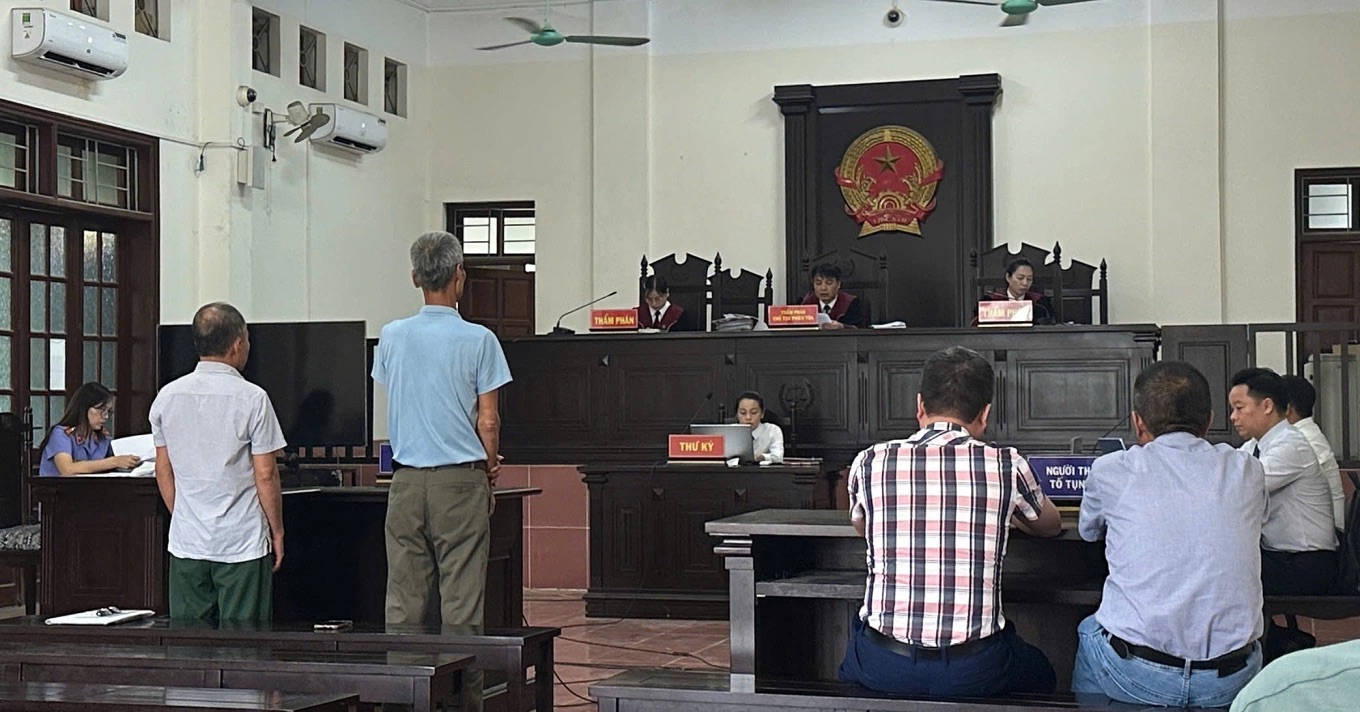 |
The two defendants (standing) at the court hearing on 16/9. Photo: Danh Lam |
The two defendants (standing) at the court hearing on 16/9. Photo: Danh Lam
Within this land, over 3,600 m2 had been subcontracted to Mr. Kien, a farm worker, since 2021. To allocate land to the village, the company first had to terminate Mr. Kien's contract.
However, before the contract was terminated, Mr. Kien independently sold 1,000 m2 to villagers for burial plots for 49 million VND. He then demanded an additional 41 million VND and a 100 m2 burial plot from the village in exchange for handing over the remaining land.
In October 2021, Mr. Thanh convened a village meeting to address this issue. To raise the funds to pay Mr. Kien, he proposed crowdfunding the land by allowing families to register and pay the village treasurer, Mr. Phuc, for burial plots.
Based on Mr. Kien's previous sale price, Mr. Thanh estimated the cost at 141,000 VND/m2. The villagers agreed, and 12 households registered to purchase plots.
Mr. Thanh subsequently allocated over 1,800 m2 of land to these families, collecting 223 million VND. This money was used for general village expenses and equipment for the community center. The remaining 143 million VND was surrendered to investigators.
Both Mr. Thanh and Mr. Phuc argued that they did not personally profit, acting only for the benefit of the community, and that their sentences were excessive. Mr. Thanh maintained that he did not set the land price independently, but rather reached a consensus with the villagers, who unanimously agreed.
Mr. Thanh's lawyer argued that a village head is not a civil servant and therefore not a public official, and thus cannot be guilty of abuse of power. "A person without power cannot abuse power," the lawyer stated.
The lawyers also contended that the case overlooked the responsibility of individuals within Song Boi Thang Long Company for the improper land transfer, and Mr. Kien for selling land while under contract.
The prosecution argued that the two defendants illegally allocated land and collected money from villagers for village expenses, essentially "benefiting the community".
Appellate Court: No personal gain does not absolve responsibility
In its appellate ruling, the Phu Tho Provincial People’s Court determined that, as village head, Mr. Thanh presided over the village meeting and proposed the land allocation scheme. He set the price and collected the money. Mr. Thanh allocated 1,800 m2 and collected 223 million VND. During the investigation, he admitted that his actions exceeded his authority due to a lack of legal understanding and a desire to fulfill the villagers' wishes. The court found sufficient grounds to affirm that Mr. Thanh, as an elected official, was responsible for his actions within the village's scope. Despite lacking the authority to allocate land and collect funds, he did so anyway.
Although neither defendant used the collected funds for personal expenses, the court held them accountable for their actions, which caused a loss of 108 million VND to the state (according to the valuation agency). "The first-instance court's conviction of the defendants for abuse of power is correct," the court stated.
Regarding Mr. Thanh's argument that the damage assessment, which included undeveloped land with unchanged status, was inaccurate, the court explained that the crime was complete when the land was allocated and the money collected. The fact that some villagers had not yet built graves on the land did not absolve him of criminal responsibility.
The court acknowledged that both defendants confirmed the voluntary return of 143 million VND of unspent village funds at Mr. Thanh's initiative. This was considered a mitigating factor, leading to a one-year reduction in Mr. Thanh's sentence.
Regarding the request to investigate Song Boi Thang Long Company, the court stated that as a legal entity, the company was not subject to criminal liability, and that the company's employees' actions did not warrant criminal charges.
Mr. Kien's unauthorized transfer of land and collection of money while under contract was deemed a breach of contract. Authorities determined there was insufficient evidence for criminal prosecution.
Thanh Lam



